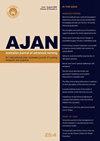Group clinical supervision for nurses: process, group cohesion and facilitator effect
IF 1.3
4区 医学
Q3 NURSING
引用次数: 6
Abstract
Objective: This qualitative research project set out to explore how, and by what means, participation in group clinical supervision might impact nurses. It aimed to describe participant perceptions of the processes within a long running reflective practice group for intensive care nurses and explore these in relation to relevant theory. Background: Interpersonal aspects of care are central to the nursing role, however, the associated emotional labour can develop into moral distress, compassion fatigue and burnout. Australia’s peak nursing and midwifery bodies have released a joint position statement on the importance of supervision for nurses. Group supervision interventions, such as reflective practice groups, mitigate stress, promote learning and support interpersonal aspects of nursing. Method: Twenty-two intensive care nurses from a reflective practice group that had been running for 10 years, participated in focus groups convened by an independent researcher. Thematic analysis identified key perceptions relating to process and outcomes. Results: Group identification, voluntary participation and skilled facilitation created an enabling environment for nurses to self-disclose. The sense of universality experienced by participants, along with increased empathy, enabled reflection and self-evaluation relevant to the group prototype of the ideal nurse. Authentic emotional expression was seen to provide respite from emotional labour, thereby regenerating resources for nurses to cope with job demands. Discussion: Key themes can be aligned to social psychology constructs of group identity, task interdependence and homogeneity, supporting earlier studies that suggest group cohesion is comprised of measurable factors. By developing and aligning with these constructs, the facilitator assists the group to establish a safe space whilst conceptualizing and aspiring to a model for the professional and compassionate nurse. Conclusion: Social psychology constructs can help develop practice and research of group supervision for nurses. In clinical nursing settings, group identity is particularly salient and facilitator interventions should aim to strengthen this. The development of a sense of universality, when combined with voluntary participation and a focus on intra-group process, can enhance cohesion and create a safe space for self-disclosure. This enables nurses to examine actions and responses to clinical situations and explore emotions incongruent with the ideal nurse prototype, thereby promoting restorative and formative benefits. Implications for research, policy, and practice: This study adds to our understanding of processes in group clinical supervision for nurses and suggests that it is appropriate to apply social identity theory to improve practice and research. It will be of interest to nurses and nursing leaders who wish to develop supervision programs. What is already known about this topic? Compassion fatigue, emotional labour and moral distress contribute to nurse burnout. Group Clinical Supervision can help mitigate stress, enhance learning and support interpersonal aspects of nursing care. The supervisory alliance is an important factor in effective clinical supervision whilst group cohesion is an important factor in the effectiveness of group work. What this paper adds: Reflective Practice Groups (RPG) are defined as a form of Group Clinical Supervision that utilize social support as a resource. RPG facilitation principles are aligned with social psychology constructs of group identity, task interdependence and homogeneity. Alliance with the facilitator and cohesion within the group, enhanced by voluntary participation and facilitation techniques, allow group members to access restorative and formative benefits whilst prompting self-evaluation against the group ideal nursing prototype.护士群体临床督导:过程、群体凝聚力与促进者效应
目的:本质性研究项目旨在探讨参与小组临床监督对护士的影响。它旨在描述参与者对重症监护护士长期运行的反思性实践小组中的过程的看法,并探索与相关理论相关的过程。背景:护理的人际关系方面是护理角色的核心,然而,相关的情绪劳动可以发展成道德困境,同情疲劳和倦怠。澳大利亚顶级护理和助产机构就护士监管的重要性发表了联合立场声明。团体监督干预,如反思性实践小组,减轻压力,促进学习和支持护理的人际方面。方法:由独立研究员召集焦点小组,对已运行10年的重症监护护士22人进行调查。专题分析确定了与过程和结果有关的关键看法。结果:群体认同、自愿参与和熟练协助为护士自我披露创造了有利的环境。参与者所经历的普遍性,以及增加的同理心,使反思和自我评价与理想护士的群体原型相关。真实的情绪表达可以缓解情绪劳动,从而为护士提供应对工作需求的资源。讨论:关键主题可以与群体认同,任务相互依赖和同质性的社会心理学结构相一致,支持早期研究表明群体凝聚力由可测量因素组成。通过发展和调整这些结构,引导者帮助团队建立一个安全的空间,同时概念化和渴望成为一个专业和富有同情心的护士的模型。结论:社会心理学建构有助于开展护士群体监督的实践与研究。在临床护理环境中,群体认同是特别突出的,促进干预应旨在加强这一点。普遍性意识的发展,与自愿参与和对群体内部进程的关注相结合,可以增强凝聚力,并为自我表露创造一个安全的空间。这使护士能够检查对临床情况的行动和反应,并探索与理想护士原型不一致的情绪,从而促进恢复性和形成性的益处。对研究、政策和实践的启示:本研究增加了我们对护士群体临床监督过程的理解,并建议应用社会认同理论来改进实践和研究。这将是感兴趣的护士和护理领导谁希望制定监督方案。关于这个话题我们已经知道了什么?同情疲劳、情绪劳动和道德困境是护士职业倦怠的主要原因。小组临床监督可以帮助减轻压力,提高学习和支持护理的人际方面。督导联盟是有效临床督导的重要因素,而团队凝聚力是团队工作有效性的重要因素。补充内容:反思性实践小组(RPG)被定义为一种利用社会支持作为资源的小组临床监督形式。角色扮演促进原则与群体认同、任务相互依赖和同质性等社会心理学建构相一致。通过自愿参与和促进技术,促进与促进者的联盟和群体内的凝聚力,使群体成员能够获得恢复性和形成性的利益,同时促进对群体理想护理原型的自我评估。
本文章由计算机程序翻译,如有差异,请以英文原文为准。
求助全文
约1分钟内获得全文
求助全文
来源期刊
CiteScore
2.30
自引率
7.10%
发文量
27
审稿时长
>12 weeks
期刊介绍:
The Australian Journal of Advanced Nursing publishes a wide variety of original research, review articles, practice guidelines, and commentary relevant to nursing and midwifery practice, health- maternity- and aged- care delivery, public health, healthcare policy and funding, nursing and midwifery education, regulation, management, economics, ethics, and research methodology. Further, the journal publishes personal narratives that convey the art and spirit of nursing and midwifery.
As the official peer-reviewed journal of the ANMF, AJAN is dedicated to publishing and showcasing scholarly material of principal relevance to national nursing and midwifery professional, clinical, research, education, management, and policy audiences. Beyond AJAN’s primarily national focus, manuscripts with regional and international scope are also welcome where their contribution to knowledge and debate on key issues for nursing, midwifery, and healthcare more broadly are significant.

 求助内容:
求助内容: 应助结果提醒方式:
应助结果提醒方式:


